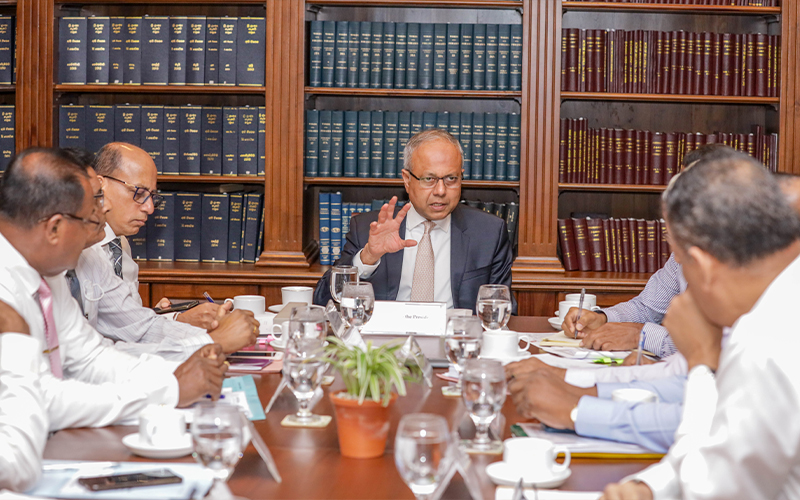
Sri Lanka's national security advisor Sagala Ratnayaka has stated that Sri Lanka will begin repaying its debt from 2028 following negotiations with it's creditors as the island continues to suffer from its worst financial crisis.
In an interview with Nikkei Asia, Ratnayaka said: “We are hoping that it [a detailed announcement] will take place in the next few weeks."
The repayment period will be for 15 years, from 2028 to 2042, with the interest rate newly set at around 2%. Ratnayaka said that there would be no further debt reduction, despite a request by Sri Lanka.
In April 2022, Sri Lanka defaulted on on US$51 billion of foreign debt as it grappled with its worst economic crisis since the island gained independence from Britain in 1948.
A meeting of creditor nations was set up in April 2023. Japan, which is the largest creditor country after China, is serving as the chair in the talks along with India and France.
The provision of financial assistance from the International Monetary Fund, which was conditional on debt restructuring agreements being struck with major creditor countries, has also begun.
Sri Lankan prime minister Dinesh Gunawardena who recently visited China stated that China has offered to “assist Sri Lanka debt restructuring” while “extending assistance to develop Katunayake International Airport, Hambantota Sea Port, and the Port City in Colombo.”
India and the U.S. have shown signs of concern over the Chinese foothold at Hambantota, on the island's southern coast, which could boost its naval advantage in the Indian Ocean. Sri Lanka recently declared a moratorium on foreign research ships entering its waters for a year amid concerns from India over Chinese research vessels docking in its neighbourhood.
Though the moratorium comes ostensibly for capacity building it is seen as a reaction to growing concerns in India. Sri Lanka has insisted its ports will not be used for any military purposes, but New Delhi has objected to Chinese research vessels calling at Hambantota fearing that they could be used for espionage. Chinese state media reported Premier Li Qiang as “expressing the hope that Sri Lanka could provide a good business environment for Chinese companies”.
We need your support
Sri Lanka is one of the most dangerous places in the world to be a journalist. Tamil journalists are particularly at threat, with at least 41 media workers known to have been killed by the Sri Lankan state or its paramilitaries during and after the armed conflict.
Despite the risks, our team on the ground remain committed to providing detailed and accurate reporting of developments in the Tamil homeland, across the island and around the world, as well as providing expert analysis and insight from the Tamil point of view
We need your support in keeping our journalism going. Support our work today.
For more ways to donate visit https://donate.tamilguardian.com.

